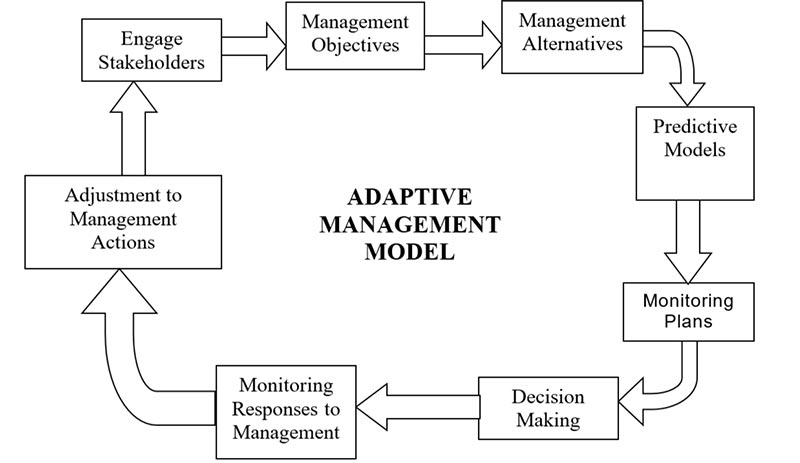
Adaptive Management: Strategies for Dynamic Business Success

Navigating Success: Adaptive Management Strategies Unveiled
In the ever-changing landscape of business, the ability to adapt is key to sustained success. Explore the concept of adaptive management strategies and how businesses can navigate challenges and seize opportunities in a dynamic environment.
Understanding Adaptive Management
Adaptive management is a proactive approach that recognizes the dynamic nature of the business environment. It involves constant monitoring, learning, and adjusting strategies to align with changing conditions. Instead of a rigid plan, businesses employing adaptive management embrace flexibility, allowing them to respond swiftly to unforeseen circumstances and evolving market dynamics.
Continuous Learning and Flexibility
At the heart of adaptive management is a commitment to continuous learning. Businesses cultivate a culture that values feedback, data analysis, and lessons learned from both successes and failures. This continuous learning loop provides the foundation for informed decision-making and the flexibility to pivot strategies based on real-time insights.
Agile Decision-Making in Action
Agile decision-making is a core component of adaptive management. Instead of waiting for exhaustive analyses, businesses make decisions based on the best available information at the time. This agility allows them to seize opportunities swiftly and address challenges before they escalate. Agile decision-making is the bridge that connects strategy with execution in a rapidly changing landscape.
Embracing Change as an Opportunity
Businesses employing adaptive management view change not as a threat but as an opportunity. Rather than resisting change, they embrace it, recognizing that adaptation is a pathway to innovation and growth. This mindset shift fosters a culture where employees are empowered to contribute ideas, experiment with new approaches, and embrace change as a natural part of the business journey.
Building Resilience in Uncertain Times
The business landscape is fraught with uncertainties, and adaptive management is a tool for building resilience. By anticipating potential challenges, identifying vulnerabilities, and creating contingency plans, businesses become better equipped to weather storms. Resilience is not just about bouncing back; it’s about thriving in the face of adversity.
Strategic Innovation for Market Relevance
In a world where markets evolve rapidly, strategic innovation is vital for maintaining relevance. Adaptive management strategies encourage businesses to constantly reassess their products, services, and processes. This innovative mindset allows them to stay ahead of competitors and meet the evolving needs and preferences of their target audience.
Data-Driven Insights for Informed Adaptation
Data plays a crucial role in adaptive management. Businesses leverage data-driven insights to understand market trends, consumer behavior, and the performance of their strategies. By making decisions based on tangible data, businesses reduce guesswork and enhance the precision of their adaptations, ensuring they are well-aligned with market demands.
Empowering and Engaging Teams
Adaptive management is not a top-down process; it involves empowering and engaging teams at all levels. When employees feel valued and included in the decision-making process, they become more invested in the success of the business. This collaboration leads to a collective intelligence that is instrumental in navigating complexities and driving positive outcomes.
Balancing Stability and Flexibility
While adaptive management thrives on flexibility, it also recognizes the importance of stability. Striking the right balance between stability and flexibility is crucial. Core values, long-term goals, and fundamental principles provide the stability that anchors the business, while adaptive strategies bring the necessary flexibility to respond to the nuances of the ever-changing landscape.
Adaptive Management Strategies in Action
Imagine an insurance company implementing adaptive management strategies. By continuously assessing market trends, swiftly adapting products to changing customer needs, and linking with Adaptive Management Strategies, the company positions itself as a dynamic player in the insurance industry, ensuring resilience and relevance.
Conclusion: Navigating Success in the Dynamic Era
In conclusion, adaptive management strategies are the compass for businesses navigating the dynamic era. Embracing change, fostering continuous learning, making agile decisions, and building resilience are pillars that support success in the face of uncertainty. Businesses that cultivate adaptive management not only survive but thrive in the ever-evolving business landscape.



